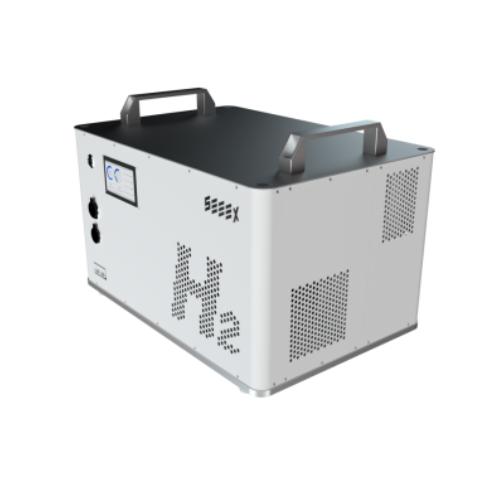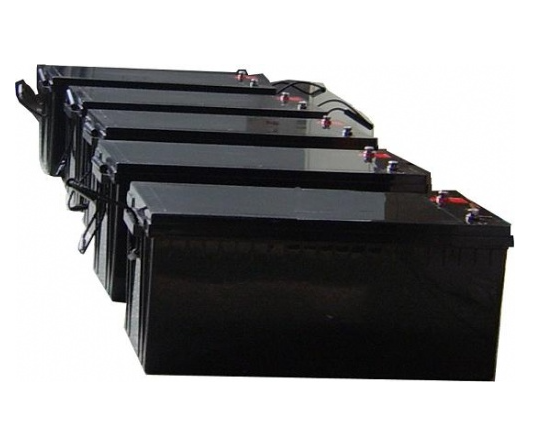Hydrogen fuel cells and lithium batteries: comparison and choice between energy sources
Hydrogen fuel cells
lithium batteries
With the continuous innovation and technological development in the energy field, hydrogen fuel cells and lithium batteries, as two important ways of energy storage and conversion, are gradually becoming the focus of attention. Although both have the advantages of being environmentally friendly and sustainable, they have significant differences in working principles, application fields, energy density, etc. This article will explore the differences between hydrogen fuel cells and lithium batteries, as well as their respective advantages in the energy sector.

Differences in working principles
There are fundamental differences in how hydrogen fuel cells and lithium batteries work. Hydrogen fuel cells produce electricity and water through an electrochemical reaction between hydrogen and oxygen. This is a combustion-free process with zero emissions as the only emission is clean water vapor. Lithium batteries realize the charge and discharge process through the migration of lithium ions between the positive and negative electrodes. The reaction of lithium batteries does not involve the production and emission of gases.
Energy density and cruising range
There are also differences between hydrogen fuel cells and lithium batteries in terms of energy density and range. As a fuel with high energy density, hydrogen can store more energy in a relatively small volume, thus enabling hydrogen fuel cells to have a longer cruising range in the transportation field. However, the storage and transportation costs of hydrogen are high, which limits its promotion in large-scale applications. In contrast, although lithium batteries have low energy density, they can also store considerable energy in a relatively light volume, and their application in the field of electric vehicles has made remarkable achievements.
Filling and charging time
There are also differences between hydrogen fuel cells and lithium batteries in terms of filling and charging times. Refueling a hydrogen fuel cell vehicle typically only takes a few minutes and can be completed quickly. However, coverage of hydrogen refueling stations is not yet widespread due to the need to build hydrogen supply infrastructure, which limits the long-distance driving of hydrogen fuel cell vehicles. On the contrary, although lithium battery vehicles take a long time to charge, the popularity of electric charging piles is relatively high, which is more suitable for urban commuting and daily use.
Infrastructure and costs
There are also differences between hydrogen fuel cells and lithium batteries in terms of infrastructure and cost. Building hydrogen supply infrastructure requires huge investment, including hydrogen manufacturing, storage and transportation facilities. Lithium battery charging facilities are relatively mature and infrastructure construction is relatively convenient. In addition, the production cost of hydrogen fuel cells is relatively high, leading to higher vehicle prices, while the manufacturing cost of lithium batteries is gradually reduced due to the higher maturity, and the price of electric vehicles is gradually becoming reasonable.

To sum up, hydrogen fuel cells and lithium batteries are key technologies for the future of green energy. They have their own advantages in different fields and applications, such as the superiority of hydrogen fuel cells in long-distance driving and high energy density applications, and the advantages of lithium batteries in urban commuting and cost-effectiveness. With the continuous development of science and technology and the change of energy demand, the two may also merge with each other in the future to create a greener and more efficient energy ecology for human beings.
 English
English Español
Español Português
Português русский
русский français
français 日本語
日本語 Deutsch
Deutsch Tiếng Việt
Tiếng Việt Italiano
Italiano Nederlands
Nederlands ไทย
ไทย Polski
Polski 한국어
한국어 Svenska
Svenska magyar
magyar Malay
Malay বাংলা
বাংলা Dansk
Dansk Suomi
Suomi हिन्दी
हिन्दी Pilipino
Pilipino Türk
Türk Gaeilge
Gaeilge عربى
عربى Indonesia
Indonesia norsk
norsk اردو
اردو čeština
čeština Ελληνικά
Ελληνικά Українська
Українська فارسی
فارسی български
български Latine
Latine slovenský
slovenský Eesti Keel
Eesti Keel Српски
Српски Esperanto
Esperanto Afrikaans
Afrikaans icelandic
icelandic Беларус
Беларус Hrvatski
Hrvatski Bosanski
Bosanski Maori
Maori Монгол хэл
Монгол хэл Hmong
Hmong Somali
Somali Точик
Точик O'zbek
O'zbek Hawaiian
Hawaiian Philippine
Philippine

Hydrogen Fuel Cell Vehicle Power Supply: Revolutionizing Clean Transportation
As the automotive industry continues to seek sustainable alternatives to traditional gasoline and diesel engines, hydrogen fuel cell vehicles (FCVs) are emerging as a promising solution. Powered by hydrogen fuel cells, these vehicles offer a clean, efficient, and sustainable alternative to conventional internal combustion engine vehicles. The power supply system of a hydrogen fuel cell vehicle plays a crucial role in determining its performance, efficiency, and environmental benefits.
Read MoreApplication market of hydrogen fuel cells: welcoming the future of clean energy
With the increasing global demand for clean energy, hydrogen fuel cell technology, as a green and environmentally friendly energy solution, is gradually penetrating into multiple industries. Its zero-emission and high-efficiency characteristics make its application prospects in transportation, energy storage, industry and other fields more and more broad. The following is the current application status and future potential of hydrogen fuel cells in major markets.
Read MoreHydrogen Energy System: Advantages for a Sustainable Future
As the world transitions toward cleaner, more sustainable energy sources, hydrogen energy systems are emerging as a powerful solution with significant advantages. With growing concerns about climate change and the need for carbon reduction, hydrogen energy offers a promising path to decarbonize industries, transportation, and power generation. Here are some of the key benefits of hydrogen energy systems.
Read More